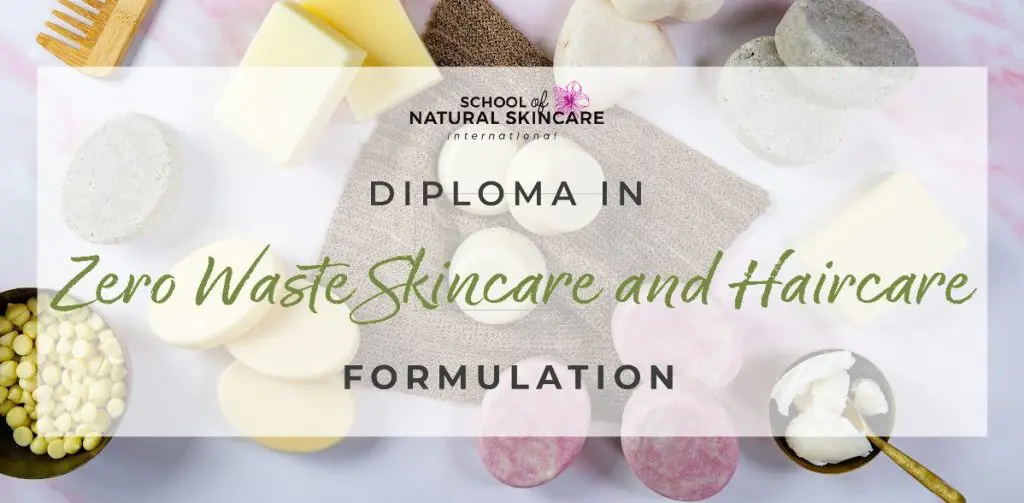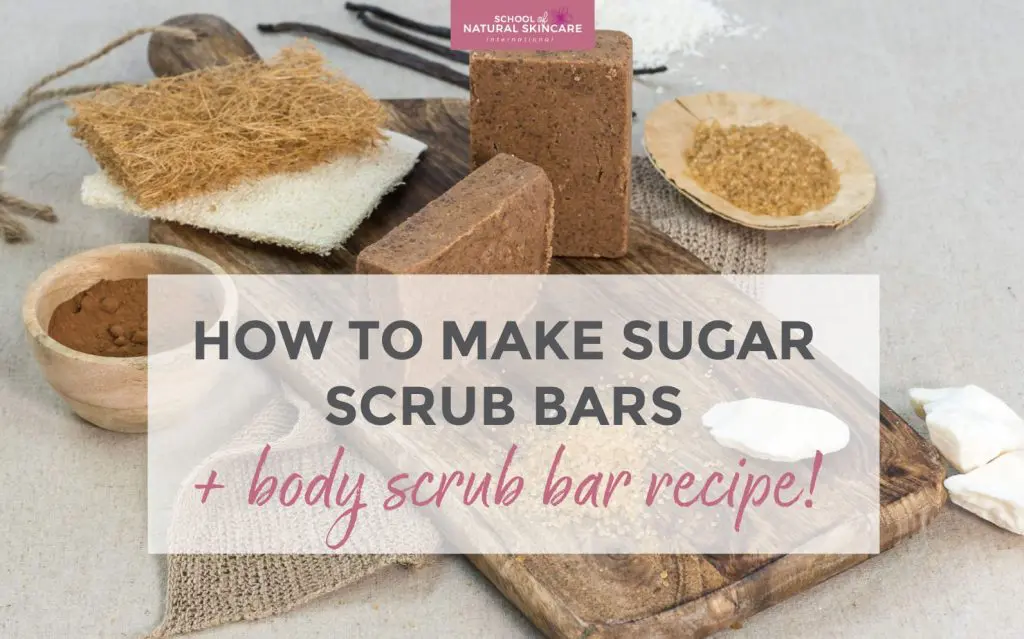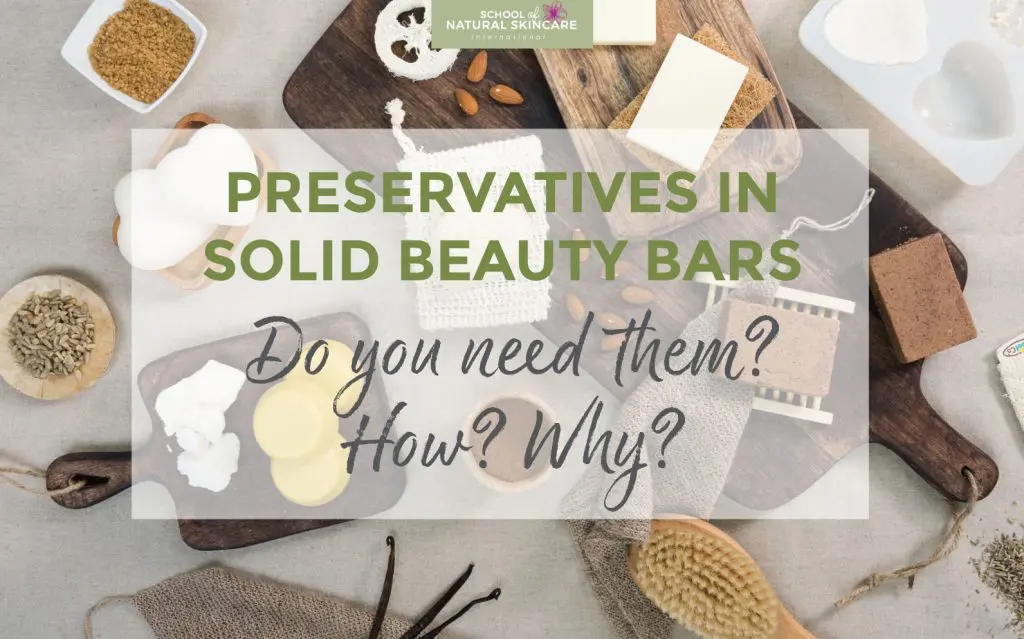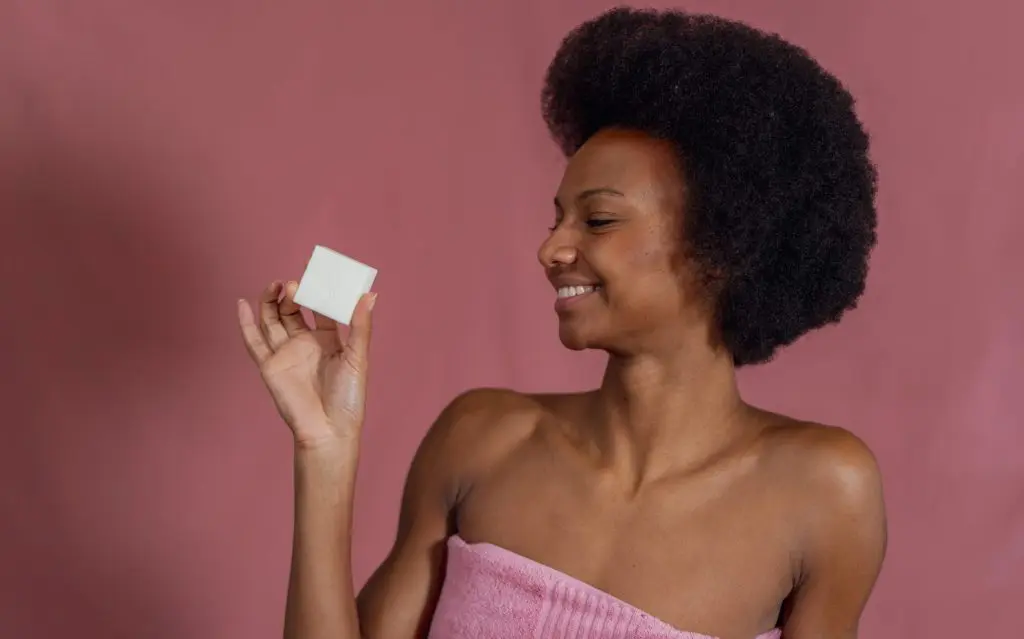Zero waste skincare aims to dramatically reduce the amount of waste created by our use of beauty products, or even eliminate it completely.
Recycling finished bottles and jars isn’t good enough any more. Problems in the recycling system means not everything that we think will be recycled is actually being recycled, plus the process of recycling itself is energy intensive.
But what does zero waste skincare actually mean? How can skincare create no waste? Is waste free skincare even possible?
Zero waste beauty brands
Beauty brands interpret the term zero waste in different ways. For REN Clean Skincare it means only producing packaging designed to be recyclable, reusable or containing recycled materials.
At UpCircle it’s about upcycling left over natural ingredients into skincare products and reusing and refilling packaging.
LUSH focuses on solid, or ‘naked’, products that don’t require packaging, and encourages conscientious buying and selling and recycling, reusing, repurposing.

Four ways to create zero waste skincare products
As a natural skincare formulator or brand founder, some exciting ways you can join the zero waste movement and reduce the amount of waste created by beauty products are by:
- Creating products in a solid, bar format that don’t require packaging.
- Creating powder concentrates that are mixed with water at home by the consumer.
- Embracing circular beauty and upcycled ingredients – using waste materials to create skincare products.
- Offering a refill scheme.
Let’s explore each of these in more detail.
1. Make zero waste solid skincare products that don’t require packaging
An exciting kind of zero waste skincare and haircare product is those that come in a solid, bar format and therefore do not need to be packaged into containers such as jars and bottles, like traditional cosmetics need to be.
For the consumer, these are waste free skincare products. Once the product is finished there is no container that needs to be disposed of – no glass, plastic or aluminum containers that need to be recycled or sent to landfill.
It could be argued that the brand LUSH pioneered this approach with products like their massage bars and bath bombs. Another brand to take this product category by storm is Ethique which was founded in New Zealand and is now a global brand.
There are so many products that can be formulated in a zero waste solid format, everything from facial cleansers, to body moisturizers, deodorant, bath and shower products, shampoo and conditioner. Discover all the solid, zero waste beauty products you can make.
Zero waste products in a solid format are the main focus of our exciting Diploma in Zero Waste Skincare and Haircare Formulation.

2. Create powder concentrates
Powder concentrates are another type of product that have a lighter environmental footprint and dramatically reduce (rather than eliminate completely) the amount of packaging required.
These are concentrated powders that the consumer mixes with water at home, for example concentrated body and hand wash powders that are mixed with water at home to become liquid body wash or hand wash.
The bottle or jar that the powders are stored or mixed in are reusable and refillable; once the product is used up, another product can be mixed together in the same container, which is one of the main benefits of this type of product.
Powder concentrates also have lower transportation and environmental impact/costs as the product is lighter and smaller than one containing water.
The concentrated powder is often packaged in paper sachets which can be recycled or composted, and this – combined with the reusable bottle they are stored in – reduces the amount of packaging used compared to regular body/hand wash.
Powder concentrates are an excellent example of low waste skincare and they can be plastic free skincare too.

3. Use upcycled ingredients
Skincare products can become more sustainable by embracing the concepts of circular beauty and upcycled ingredients. Upcycling is one way to embrace no waste skincare.
Circular beauty involves using ingredients that would otherwise be considered waste material to create sustainable beauty products. This waste, usually from food, is ‘upcycled’ and used in skincare formulations.
Formulating with upcycled ingredients is one way that the beauty industry can contribute
to creating a circular economy that extends the lifecycle of products and reduces waste to a minimum.
Fruit seeds and stones from the food industry can be turned into carrier oils for cosmetics. Two examples are using strawberry seeds and plum kernels from the food industry to create strawberry seed oil and plum kernel oil for cosmetics.
UpCircle collects used coffee grounds from cafes around London and upcycles them in their range of face and body scrubs.

4. Reuse and refill packaging
Many brands have established refill schemes. Customers return their used packaging to the brand to be thoroughly cleaned and sanitized and used again. Beauty Kitchen was an early pioneer of this approach.
Powder concentrates sold with reusable bottles enable the consumer to refill and resume the bottle themselves at home.
Reusing and refilling is an effective way of reducing the amount of packaging waste and creating no waste skincare. Careful thought needs to be given to the packaging that is used to ensure it can be reused and refilled many times without degrading.

Problems with the term ‘zero waste’ skincare
The term zero waste skincare is somewhat problematic. For example, even if the product itself is packaging free, what about the waste that is created in the manufacture of the product, for example the containers the raw materials are packaged in?
If you are selling your products, will you use paper to wrap them in or cardboard boxes to transport them? If so, then strictly speaking this creates waste (albeit waste that is much easier to recycle than plastic packaging and in many cases home compostable).
Despite the potential problems with the term zero waste, it’s a term growing in use, popularity and understanding. It describes a concerted effort to dramatically reduce waste created by our skincare products.
The person using the products at home experiences a zero waste product. Once the product is used up there is no waste they need to dispose of. In the case of solid products, the product is simply used up. For powder concentrates, the packaging is reused at home. If the brand offers a refill scheme then the customer sends the packaging back to them to be reused.
Other terms you could use to describe zero waste skincare are low waste skincare, solid skincare, packaging free cosmetics, or plastic free cosmetics. Feel free to choose the terminology that feels right to you.
To find out more about zero waste skincare check out 10 benefits of solid, package free skincare products and 21 solid, zero waste beauty products you can make.

Formulate your own zero waste skincare
Since 2020 we’ve been working on innovative zero waste formulations and we’ll soon be sharing all our expertise with you in our brand new Diploma in Zero Waste Skincare and Haircare Formulation!
This multimedia online course will teach you to formulate a wide range of solid, package free products including solid facial cleansers and exfoliators, solid moisturizers and serums, solid deodorant, solid shower products, solid shampoo and conditioner.
You’ll also formulate powder concentrates, and learn about ingredient innovations that are helping to reduce waste – upcycled ingredients and biofermentation.





